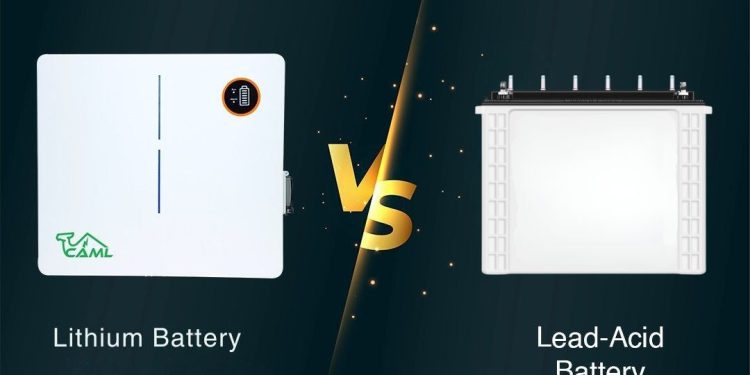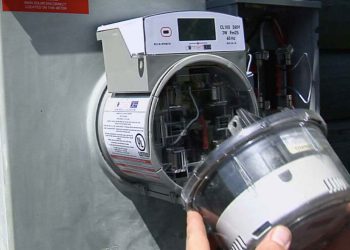In today’s world, energy is everything. Choosing the right battery is very important because it powers almost everything from our homes to large workplaces because when you choose the right battery, it can ensure uninterrupted power, save costs, protect your appliances, and support a sustainable energy future.
The two most common types of rechargeable batteries are lithium-ion and lead-acid.
Lead-acid batteries have been used for many years, but now lithium batteries have replaced them because they work better, last longer, and are more efficient.
While keeping these things in mind and to meet these modern energy needs, Loom Solar has introduced its advanced CAML Lithium Battery range, designed to deliver higher efficiency and better performance compared to traditional lead-acid batteries. These lithium batteries come in three powerful categories to suit different energy needs:
- Wall-Mount Lithium Batteries – Compact, efficient, and capable of delivering stable power for homes and small businesses.
- Rack-Mount Lithium Batteries – Ideal for larger setups, offering scalable backup and reliable performance.
- Stackable Lithium Batteries – Flexible and expandable, allowing you to increase capacity as your power requirements grow.
With CAML Lithium Batteries, users can upgrade from lead-acid to a smarter, safer, and more reliable energy storage solution which perfect for solar systems of any size.
Let’s take a closer look at why lithium batteries are a better choice for energy storage.
Understanding Lead-Acid Batteries
Lead-acid batteries are the oldest kind of rechargeable battery. They consist of lead plates and sulfuric acid inside them. They are commonly used in cars, backup power systems, and solar setups.
These batteries are less at cost, but they have some big challenges:
-
Low energy storage: They are heavy and large compared to the amount of energy they can store.
-
Short life: They can usually last 3 to 5 years and can handle only 300–500 charging cycles before losing strength.
-
Regular maintenance: You need to check and maintain them at frequent times to keep them working properly.
Lithium-Ion Batteries: The Modern Solution
Lithium-ion batteries use a special technology called Lithium Iron Phosphate (LiFePO₄), They are lightweight, compact, and very efficient, this makes them perfect for modern solar systems and high-performance needs.
Lithium batteries use a lithium-based electrolyte, which helps them store more energy in less space.
Because of their efficiency and reliability, they are now used in many applications where high power and long life are needed.
Benefits of Lithium Batteries Compared to Lead-Acid Batteries
1. Higher Energy Storage
Lithium batteries can store more energy as they are smaller and lighter.
For example, a lithium battery can give the same power as a lead-acid battery but is almost half in weight. This makes them a great choice for electric vehicles and solar systems, where space and weight matter a lot.
With higher energy, the battery gives longer backup in a smaller size.
2. Longer Life and Better Performance
Lithium batteries stay durable for long time than lead-acid batteries.
Whereas lead-acid batteries need to be replaced after 3–5 years, lithium batteries can last 10 years or more.
Because of this, they are cheaper in long run, as you don’t need to replace them often.
They also work better in extreme weather, whether it’s too hot or too cold, when lead-acid batteries usually lose power and get damaged in such conditions.
3. Faster Charging
Lithium-ion batteries can charge 50% faster as compared to lead-acid batteries. The faster charge times also reduce downtime, making lithium batteries a more efficient choice in commercial application.
4. Lightweight and Compact Design
Lithium batteries store more energy as they are lighter in weight and smaller than lead-acid batteries. This makes them appropriate for solar power systems, mostly for rooftops or off-grid setups where space is limited. Their smaller size and lighter weight also make installation easier and more efficient, which help you get the best use of your solar system.
5. Environmentally Safe
Lithium-ion batteries are considered more environment friendly than lead-acid batteries. Lead-acid batteries contain lead, a toxic material, and require recycling carefully to avoid environmental damage. While lithium-ion batteries also need to be recycled, they do not bring the same level of environmental risk with their use. As battery recycling technology gets improved, lithium-ion batteries are becoming even more sustainable.
Cost Compare
While initially the cost of lithium-ion batteries is higher than that of lead-acid batteries, the total cost of ownership over time is often lower. Lithium-ion batteries offer greater energy efficiency, a longer lifespan, and lower maintenance needs. In the long run, these benefits offset the higher upfront cost, making lithium batteries a more economical choice in the broader scope of energy storage.
Applications Where Lithium Batteries Work Better Than Lead-Acid Batteries
Lithium-ion batteries work best in situations where you need extra efficiency, long life, and fast charging. They perform better than lead-acid batteries in various key areas, including:
-
Energy Storage Systems (ESS): Lithium batteries are ideal for storing large amounts of energy for later use. As compared to lead-acid batteries, they work for a long time, don’t take much space, and provide reliable power for homes, industries, and solar projects.
-
Renewable Energy Storage: In solar and wind power systems, lithium batteries deliver more reliable and durable energy storage solutions, providing ongoing power availability.
-
Solar Power Systems: Lithium batteries are considered ideal for modern solar power systems, especially for homes, businesses, and off-grid setups as compared to lead-acid.
The Future of Lithium Batteries
The future of lithium batteries is bright. Research on solid-state batteries, better recycling methods, and higher energy storage will make lithium-ion batteries more efficient and affordable.
This will help them stay a better choice for storing energy for many years.
Conclusion
Lithium-ion batteries offer many advantages in comparison with lead-acid batteries, including higher energy density, longer lifespan, faster charging times, and greater environmental safety. If you’re looking for a perfect energy storage system- Loom Solar’s CAML Lithium Battery is the ultimate choice. The CAML battery works better and is more efficient than the outdated lead-acid batteries.
They come with a higher cost initially, while their long-term performance, reduced maintenance, and overall efficiency make them a smart investment for a wide range of applications.
So if you choose a CAML battery over lead acid battery, this can be a better choice for you. Lithium batteries are not just the future; they are the present of energy storage.
















